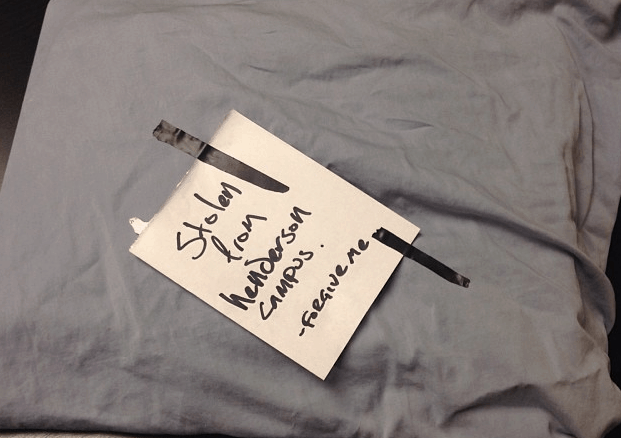At my Christian college, the question of “Is it biblical?” was somewhat of a joke: scribbled on articles posted in the student center or said in jest whenever students gathered in a dorm room to watch a movie that didn’t have a PG rating.
Rather than being insulated during my time in school, I felt my college experience introduced me to much of the world’s greatest literature—whether secular or faith-based—and I learned profoundly from the rich literary tradition of the English language. But along the way I began to notice a potentially harmful double standard cropping up in the Church. It seems we engage secular culture with mental filters while at the same time we choose to absorb Christian books, music or films with a certain laissez-faire attitude of complete and naïve trust.
Here’s the truth of the matter: Just because something has been labeled “Christian” does not mean it is biblical.
A quick look at the “Christian” sections of bookstores will remind us just how much of a fan club the Church can be: the latest John Piper book, the plethora of Tim Keller works. I’m not saying that any of these writers—or filmmakers or musicians, for that matter—are bad, or that they’ve got their theology all wrong. But I do think God calls us to think critically of everything we take in, making sure to read widely rather than narrowly.
By nature, we as humans can’t be expected to produce utterly orthodox work every time we put pen to paper, every time we press record and start speaking. I think of Church pillars such as Luther and Calvin and Barth and shudder when things they’ve done come to light. Luther with his anti-Catholic and anti-Jewish writings, Calvin with his persecution of purported heretics, Barth who housed his wife and mistress under the same roof. Don’t get me wrong here. I’m not judging these men at all because, just like any Christian, I have made my own share of mistakes. I simply ask that we temper the way we consider Christian figures—from the Church Fathers to the rock band Third Day—that we realize their faults and need for a God who guides and corrects weakness.
If we absorb Christian art and culture without calling it to a standard, we run the risk of having our theology messed up in very subtle yet devastating ways. We run the risk of absorbing ideas we never intended to. And often the ideas we think are safest can be the most harmful.
Perhaps we come to see God in a harsher light than who He is. Or we are urged to see God entirely as a friend in place of His identity as author and judge of the world. Articles and books might convince us that church growth is a simple step-by-step process. We might be urged to see the secular and Christian worlds as polar opposites, rather than realizing there is an in-between.
Our faith is not meant to be condensed and explained in a single book’s thesis. Christianity is and always has been a mosaic that stretches as far as the eye can see. Each of us can only see a few square inches of it, but with the help of Scripture and those around us, we come to comprehend a bigger picture while recognizing there is still so much more we don’t know.
I am convinced that all writing and all work that we as humans produce has bias. The next time you read an article online or listen to a song, make sure you realize that the person is arguing something. God gave us brains with both logic and emotion by which we can feel our way through the arguments of the world. I’ve found that the best so-called “Christian” books are the ones I struggle with—the type of books I want to throw across the room while at the same time keep reading.
A recent collection of essays by the poet Christian Wiman, My Bright Abyss, is a perfect example of a writer I respect but with whom I don’t always agree. Wiman grapples with suffering and doubt and finds the diagnosis of cancer as a stepping stone for belief in God. But his articulations of who God is and his concepts of time and eternity are not beliefs I thoroughly share.
And there are many more: from C.S. Lewis, the patron saint of modern Protestantism, to Saint Augustine to Thomas Merton—all of whom journey towards God while making missteps. But that is a part of being human. Our journey to God is exactly that: one in which we constantly understand new ways and relearn old ways of perceiving Him.
So let me challenge you to genuinely and wholeheartedly ask the question “Is it biblical?” as you go through your daily life and take in everything the culture around us has to offer. Perhaps you will find that a secular band might have a greater and deeper understanding than a Christian band you hear on the radio. You might find that a film by Terrence Malick can do wonders for your understanding of suffering in place of a book with big words like “theodicy” and “kenosis.”
But always look at things critically, making sure to ask the right questions and to guide the development of your heart and mind with the help of God.






















